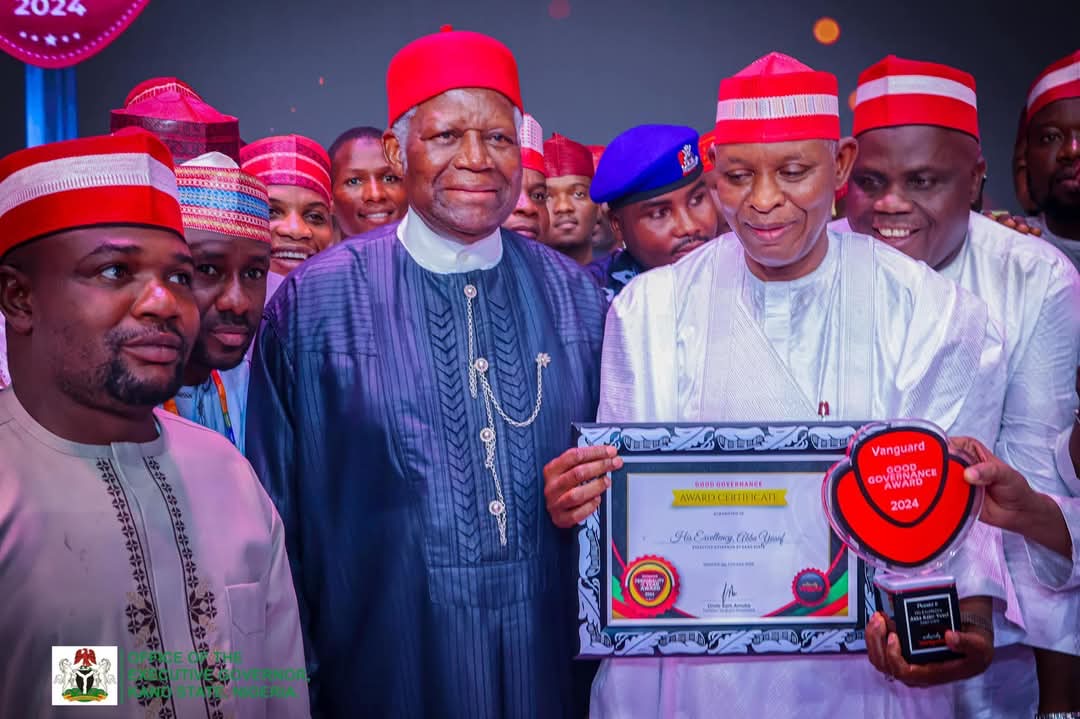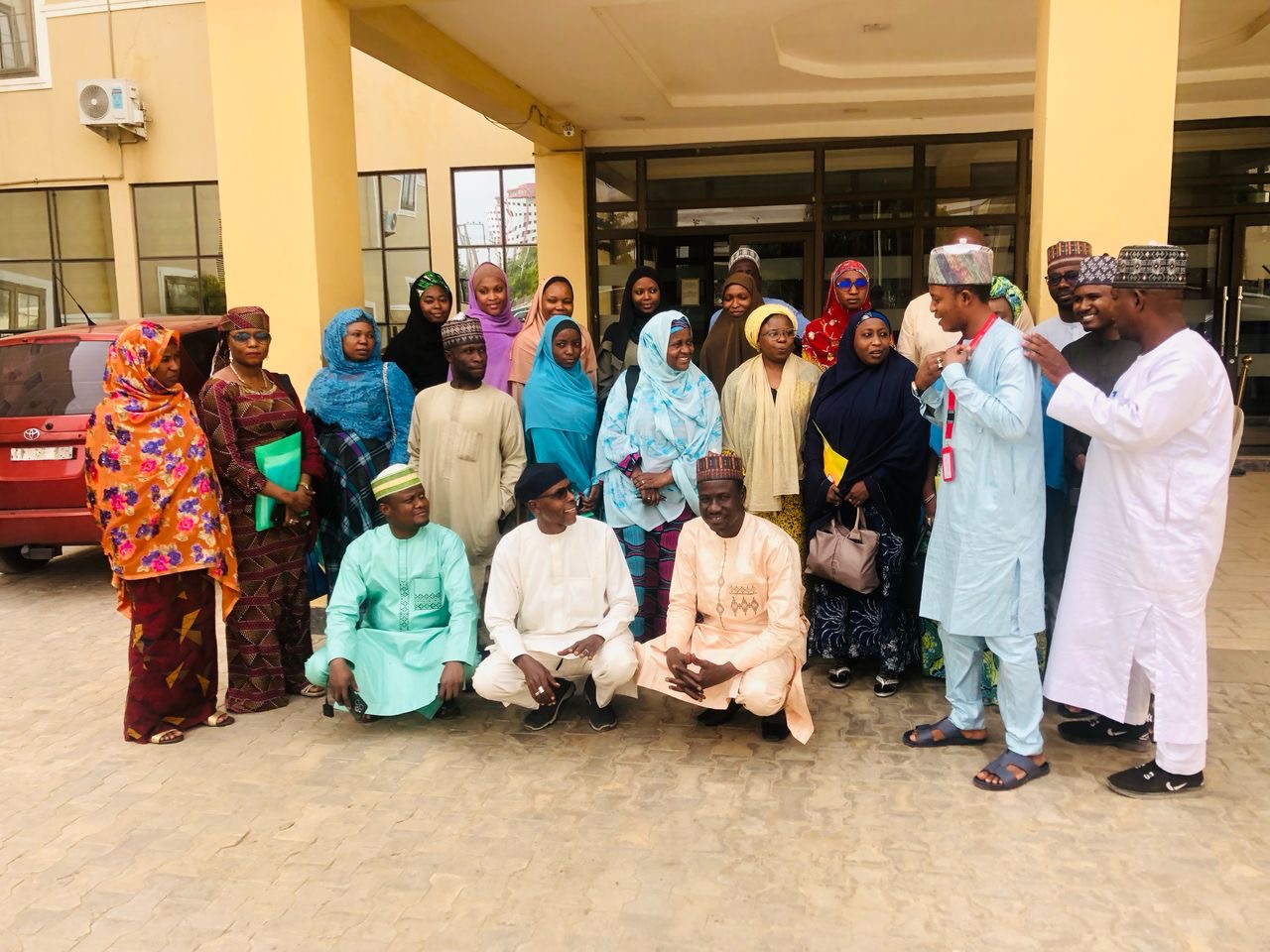News
Undersea Cable Cuts: NCC calls for multilateral approach to secure telecoms infrastructure

Nasiru Yusuf Ibrahim
The Nigerian Communications Commission (NCC) has has called for a coordinated and multilateral approach by the region to protect shared telecommunications infrastructure, and diversify connectivity to ensure uninterruptible connections, following recent undersea cable cuts that challenged connectivities in many countries in the West African region, Nigeria.
KANO FOCUS reports that Executive vice chairman of the NCC, Dr. Aminu Maida, made the submission in a statement delivered at the 21st West Africa Telecommunications Regulatory Assembly (WATRA) Annual General Meeting (AGM) which held in Sierra Leone.
Maida, whose message was delivered at the WATRA AGM by the deputy director, Public Affairs of the Commission, Nnenna Ukoha, stated that the recent submarine cable cuts that resulted in nationwide outages on multiple networks in 12 African countries has raised the urgent need for the subregion to establish a mechanism to protect itself from damage to submarine infrastructure and its attendant impact on the subregion.

Maida referred to a report by Cloudflare, an IT service management firm, which indicates that about six countries, including four West African countries, were still suffering from the outages caused by the submarine cable cuts, to buttress the call.
“Securing telecom infrastructure is paramount for fostering Foreign Direct Investment (FDI) and enhancing investor confidence in the West African sub-region.
The reliability and resilience of telecommunications networks are crucial factors that investors consider when evaluating regional opportunities.
“By ensuring the security of these vital assets, we can attract more investment, spur economic growth, and enhance our competitiveness on the global stage. A secure telecoms infrastructure not only facilitates efficient communication and connectivity but also signals a commitment to safeguarding critical assets essential for business operations. This assurance can significantly boost investor confidence and create a conducive environment for sustainable economic development,” he said.
According to him, “the impact of events like cable cuts highlights the need for a coordinated, multilateral approach to protecting shared infrastructure across our member nations.”
Maida therefore, proposed “the urgent need to set up a framework for joint monitoring, risk mitigation, and emergency response procedures for the submarine cables that pass through the sub-region.
“Further to this, we recommend that the WATRA Working Group on Infrastructure expand its mandate to spearhead the development of a comprehensive strategy to safeguard the subregion’s telecommunications networks and associated infrastructure thereby proactively bolstering resilience through improved disaster response protocols to better insulate ourselves from future disruptions.”
‘Undersea Cable Cuts: Why Nigeria Was Not Severely Affected’
He advised that the goals of the Working Group would be to strengthen sub-regional infrastructure resilience, promote the diversification of the sub-region’s connectivity, conduct regular capacity assessments, as well as facilitate the designation of telecommunications infrastructure as critical national infrastructure in member countries.
The West Africa Telecommunications Regulators Assembly, was established in 2002 as a common platform for national telecommunication regulatory authorities in 16 member states to promote the adoption of regulations that stimulate investment in telecommunication infrastructure to deliver more affordable, accessible, faster and secure communication services to citizens.
At the 21st WATRA Annual General Meeting, issues pertaining to accessible and affordable telecommunication services in the sub-region were discussed, including improved consumer protection, quality of service, roaming and conflict resolution for consumers.
A major highlight of the AGM was the reelection of Nigeria’s Engr. Yusuf Aliyu Aboki, as Executive Secretary, for a second term in a unanimous vote by the member countries.
The EVC of NCC commended Engr. Aboki for his firm, inclusive and visionary leadership, which saw the successful delivery of WATRA’s 2022 — 2025 Strategic Plan, noting that Nigeria and indeed the sub-region was proud of the milestones he has achieved during his first tenure.
He further advised the WATRA executive secretary to build on the achievements of his first tenure, through stronger partnerships and deeper collaboration while advancing the interests of the sub-regional body.
KANO FOCUS recall that in the early hours of Thursday, March 14, 2024, there was a nationwide outages on multiple networks in 12 African countries, including Nigeria. This led to internet disruption in major sectors of the economy.

Headlines
Governor Yusuf Champions Education, Resolves Certificate Crisis for Kano Graduates

Kano State Governor Abba Kabir Yusuf has emerged as a beacon of hope for graduates left stranded due to the previous administration’s negligence regarding academic certificates.
His determination to rectify these injustices has culminated in decisive actions to secure the future of Kano’s youth. Ibrahim Adam, the Special Adviser to the Governor on Information, shared these developments with the media.
On December 9, 2024, Governor Yusuf traveled to Cyprus with a mission to obtain the overdue academic certificates for Kano students affected by the prior administration’s failure to meet its educational financial obligations.
During a critical meeting with the management of Near East University, the governor focused on facilitating the release of certificates for students who graduated between 2015 and 2019, particularly in essential fields like Medicine and Nursing.
This was confirmed by Sunusi Bature Dawakin Tofa, the governor’s spokesperson.

In a significant move, Governor Yusuf has settled the outstanding fees of €1.4 million (approximately ₦2.5 billion) owed to the university for 84 medical and2015 to 2019.
This substantial financial commitment honors the dedication and hard work of these graduates, restoring their hopes for a future that had previously been unjustly delayed.
According to Ibrahim Adam, the certificates are set to be handed over to the Kano State Scholarship Board through the Nigerian Ambassador to Turkey, marking a pivotal moment for the affected students.
Governor Yusuf acknowledged the challenges faced by the graduates, declaring, “This situation has been a significant setback for our children, hindering their dreams and aspirations, and it has also affected our state, which is in dire need of their expertise.”
His vision for a prosperous Kano is centered on prioritizing education, ensuring that talented individuals can make valuable contributions to the state’s advancement.
The governor’s proactive measures not only address the systemic issues in the education sector but also inspire renewed hope among Kano’s youth.
By fulfilling his promises, he emphasizes the crucial role of supporting young people in achieving their aspirations, which is vital to the state’s growth.
As this milestone is celebrated, it is evident that Governor Abba Kabir Yusuf’s relentless pursuit of educational reform signals a transformative era for Kano State.
His administration’s unwavering focus on education stands as a vital investment in the futures of individuals and the overall development of the state.
Under his leadership, Kano State is poised to realize its full potential, with eager graduates ready to make impactful contributions to their communities.
Governor Yusuf’s commitment to empowering the youth serves as an enduring reminder that with dedication and decisive action, a brighter future is attainable for all.

Headlines
Governor Yusuf Bags Vanguard’s 2024 Good Governance Award

Mukhtar Yahya Usman
Kano State Governor, Alhaji Abba Kabir Yusuf, has been named Governor of the Year 2024 (Good Governance) by Vanguard Newspaper, in recognition of his transformative achievements in the education and healthcare sectors.
The recognition was announced in a statement issued by the Governor’s spokesperson, Sanusi Bature Dawakin Tofa, on Saturday.
Governor Yusuf received the award at a prestigious event held in Lagos, where eminent personalities from across the country were honoured for excellence in leadership and service.
Speaking at the ceremony, the Chairman of the occasion, Atedo Peterside, emphasized that the selection process was based on merit and verifiable impact, commending the awardees for their outstanding contributions to national development.

Vanguard’s Editor-in-Chief, Eze Anaba, praised Governor Yusuf for setting a high standard in governance through his commitment, innovation, and focus on people-centered policies.
In his remarks, Governor Yusuf expressed gratitude to Vanguard for the recognition, dedicating the award to the people of Kano State.
He reaffirmed his administration’s resolve to continue investing in sectors that directly impact the lives of citizens, especially education, health, and social welfare.
Other recipients of the Good Governance Award included Governors Umar Namadi (Jigawa), Charles Soludo (Anambra), Douye Diri (Bayelsa), Biodun Oyebanji (Ekiti), Sheriff Oborevwori (Delta) and Hope Uzodinma (Imo).
Governor Yusuf was accompanied to the ceremony by members of the State Executive Council, lawmakers, special advisers, local government chairmen, and close political allies.
This latest honour comes just four days after he received the Governor of the Year (Education) award from Leadership Newspaper.
The Governor is also scheduled to receive the Africa Good Governance Award from Heritage Times Magazine later this month in Morocco.

Headlines
Kano Tops Nigeria’s Zero-Dose Immunization List as Boost Project Targets Urgent Action

By Aminu Abdullahi Ibrahim
Kano State has the highest number of zero-dose immunization cases in Nigeria, with 15 local government areas (LGAs) identified as high-burden, according to Save the Children.
This alarming figure has prompted the launch of targeted interventions under the Boost Project, a collaborative initiative by Save the Children and GSK aimed at reducing the number of zero-dose and under-immunized children in the country.
During an engagement meeting held on Thursday with the Kano State Community of Practice (CoP) on Immunization, stakeholders renewed commitments to tackling the issue.
The project is currently being implemented in Kano and Lagos States, with focused interventions in Ungogo and Gezawa LGAs, which are among the most affected areas in Kano.

Speaking at a media and civil society dialogue, Taiwo Folake, Coordinator of the Boost Project, emphasized the critical role of public engagement in reversing the trend.
She called for increased media support to drive awareness and community action on immunization.
Folake explained that the Boost Project works closely with state and local governments, traditional and religious leaders, and caregivers to ensure that children who have never received routine vaccines are reached, while also reintegrating those who have dropped out of immunization schedules.
Dr. Itunu Dave Agbola, Policy and Advocacy Coordinator of the project, said the initiative is also focused on improving domestic resource mobilization for immunization funding, strengthening governance, and developing a Kano-specific immunization policy to enhance planning, funding allocation, and accountability.
She noted that building trust through community leadership is vital for vaccine acceptance.
Also speaking, Salisu Yusuf, Co-Chair of the Kano CoP on Immunization, reiterated the group’s commitment to working with all stakeholders to reduce the number of high-burden LGAs.
He dismissed widespread misconceptions about vaccine safety, assuring that vaccines are safe and scientifically approved.
Yusuf pledged to intensify sensitization efforts through media outreach, house-to-house campaigns, and community meetings.
The meeting marks a renewed drive to improve immunization coverage in Kano State, with a strong emphasis on reaching vulnerable and underserved communities.














